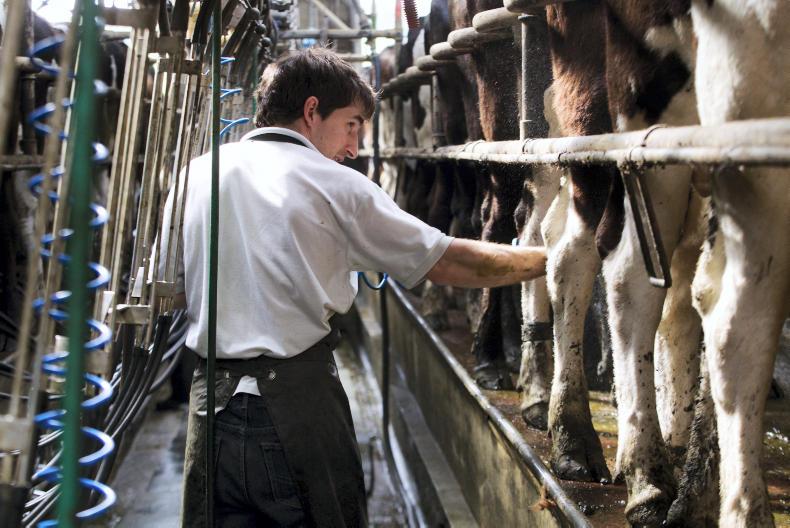
LOYALTY CODE:
The paper code cannot be redeemed when browsing in private/incognito mode. Please go to a normal browser window and enter the code there

LOYALTY CODE:
The paper code cannot be redeemed when browsing in private/incognito mode. Please go to a normal browser window and enter the code there
This content is copyright protected!
However, if you would like to share the information in this article, you may use the headline, summary and link below:
Title: Labour shortage a threat to farm safety
IFA wants skilled workers from non-EU countries allowed into Ireland to tackle workload.
https://www.farmersjournal.ie/labour-shortage-a-threat-to-farm-safety-276277

ENTER YOUR LOYALTY CODE:
The reader loyalty code gives you full access to the site from when you enter it until the following Wednesday at 9pm. Find your unique code on the back page of Irish Country Living every week.

CODE ACCEPTED

You have full access to farmersjournal.ie on this browser until 9pm next Wednesday. Thank you for buying the paper and using the code.

CODE NOT VALID
Please try again or contact us.
For assistance, call 01 4199525
or email subs@farmersjournal.ie
Sign in

Incorrect details
Please try again or reset password
If would like to speak to a member of
our team, please call us on 01-4199525
Reset
password
Please enter your email address and we
will send you a link to reset your password

If would like to speak to a member of
our team, please call us on 01-4199525
Link sent to
your email
address
![]()
We have sent an email to your address.
Please click on the link in this email to reset
your password. If you can't find it in your inbox,
please check your spam folder. If you can't
find the email, please call us on 01-4199525.
![]()
Email address
not recognised
There is no subscription associated with this email
address. To read our subscriber-only content.
please subscribe or use the reader loyalty code.
If would like to speak to a member of
our team, please call us on 01-4199525
 This is a subscriber-only article
This is a subscriber-only article
Update Success !

The sudden expansion of the dairy herd means there is an immediate need for skilled and semi-skilled labour from outside the EU, the IFA has stated in a submission to the Department of Jobs, Enterprise and Innovation, which has commenced a review of employment permits.
“In most cases, salary and working conditions are not the issue, but the lack of suitable candidates within the existing labour pool,” the IFA said. “Farmers have identified suitably skilled individuals in countries outside the European Economic Area where there is an already established intensive dairy industry but unfortunately due our current work permit regime they are unable to employ them.”
Compact calving was also increasing workload at specific times, it said.
“It is ironic that this shortage of skilled labour in the dairy sector has resulted in a deterioration of the working conditions for many individual farmers, which, among other things, will unfortunately only exacerbate the health and safety on farms.”
In relation to horticulture, the low margins in the sector mean that many of the jobs on offer are at the lower end of the pay scale and are seasonal. This means they are of interest to semi-skilled or unskilled migrant workers.
The improving economy means many of these individuals are moving into jobs in retail and construction.
“In short, despite the improvement in working conditions, etc, on farms, and the fact that Ireland has the second highest minimum wage within the EU, producers are now struggling to source manual labour and production operatives in particular,” the IFA said.
SHARING OPTIONS: